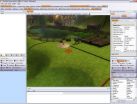Can cockpit automation cause pilots to lose critical thinking skills? Research says yes
2014-12-01
(Press-News.org) In the wake of recent airline crashes, major news networks have aired concerns about pilots' ability to accurately fly "by hand" when the airplane's cockpit automation systems fail. Although many of these concerns have centered on manual skills such as operating the airplane's controls, new human factors/ergonomics research suggests that pilots' thinking skills, such as navigating, remaining aware of the status of the flight, and diagnosing troublesome situations, are most vulnerable in today's automated cockpits. In a new study published in Human Factors, researchers studied how the prolonged use of cockpit automation negatively impacts pilots' ability to remember how to perform these key tasks.
"There is widespread concern among pilots and air carriers that as the presence of automation increases in the airline cockpit, pilots are losing the skills they still need to fly the airplane the 'old-fashioned way' when the computers crash," said Steve Casner, coauthor of "The Retention of Manual Flying Skills in the Automated Cockpit" and research psychologist at NASA's Ames Research Center.
Casner and coauthors Richard Geven, Matthias Recker, and Jonathan Schooler studied 16 experienced pilots as they flew routine and nonroutine flight scenarios in a Boeing 747-100 simulator. Levels of automation available to the pilots were varied as the researchers graded pilots' performance. The pilots also reported what they were thinking about as they flew.
Results indicated that pilots' instrument-scanning and "stick-and-rudder" skills remained reasonably intact despite prolonged periods of disuse. More significantly, however, the study found that pilots often struggled with maintaining awareness of the airplane's position when the GPS and map display were disabled, or with troubleshooting problems when the automated systems were not available to provide hints. Furthermore, pilots who relied more heavily on the computers to handle these tasks and who allowed their thoughts to drift during flight were more likely to suffer the effects of rusty cognitive skills.
"Our results suggest that we might be a bit less concerned about things that pilots do 'by hand' in the cockpit and a bit more concerned about those things that they do 'by mind,'" said Casner. "Pilots' ability to remain mindful and engaged as they now watch computers do most of the flying may be a key challenge to keeping their cognitive skills fresh."
INFORMATION:
To receive a copy of the article for media reporting purposes, contact HFES Communications Associate Cara Quinlan (310/394-1811; cara@hfes.org) or Communications Director Lois Smith (310/394-1811; lois@hfes.org).
The Human Factors and Ergonomics Society is the world's largest scientific association for human factors/ergonomics professionals, with more than 4,800 members globally. HFES members include psychologists and other scientists, designers, and engineers, all of whom have a common interest in designing systems and equipment to be safe and effective for the people who operate and maintain them. "Human Factors and Ergonomics: People-Friendly Design Through Science and Engineering"
Save the date for the 2015 International Annual Meeting, to be held October 26-30 in Los Angeles.
ELSE PRESS RELEASES FROM THIS DATE:
2014-12-01
New research published in the December 2014 issue of the Journal of Leukocyte Biology, shows that a component found in in the plant, Glycyrrhiza uralensis, may inhibit the development of metabolic disorders by stopping the activation of NLRP3, a protein involved in the disease process. Specifically, the researchers identified isoliquiritigenin as having the ability to attenuate high-fat, diet-induced obesity, type 2 diabetes and hepatic steatosis in mice.
"Identification of small compounds that inhibit the NLRP3 inflammasome is required to design effective therapeutics," ...
2014-12-01
Scientists have taken an important step toward a new class of antibiotics aimed at stopping lung infections. They found that a protein found in large airways, called "SPLUNC1," binds to lipids critical to defending against bacterial and viral infections, as well as keeping lung tissue flexible and hydrated. This discovery moves SPLUNC1 closer toward becoming a viable therapy and was reported in the December 2014 issue of The FASEB Journal.
"By shedding light on the mechanisms and interactions between various elements of pulmonary surfactant, our findings represent significant ...
2014-12-01
This news release is available in German. Traumatic events leave their mark. People exposed to a traumatic experience early in life are more likely to be affected by illnesses such as borderline personality disorder or depression. However such experience can also have positive effects in certain circumstances. Thus, moderate stress in childhood may help a person develop strategies to better cope with stress in adulthood.
Further, it has long been recognised by psychologists and psychiatrists that the negative effects of trauma experienced by parents can be seen in ...
2014-12-01
New research involving rats, and published in the December 2014 issue of The FASEB Journal, suggests that if you were born at a low birth weight, supplemental co-enzyme Q (CoQ) may lower your risk for heart disease. This enzyme, which is naturally made in the body, is required to ensure the proper functioning of cell mitochondria and also protects cells from oxidative damage. Feeding low birth weight rat offspring extra CoQ prevented the age-associated damage that causes heart disease. Additionally, the reports shows that CoQ is reduced in white blood cells from low birth ...
2014-12-01
Tropical Storm Hagupit was just a low pressure area on Nov. 30, but warm waters and good atmospheric conditions allowed the storm to develop rapidly. By Dec. 1 the low pressure area strengthened into a tropical storm when NASA's Terra satellite passed overhead.
The Moderate Resolution Imaging Radiometer known as the MODIS instrument that flies aboard NASA's Terra satellite captured a visible image of Tropical Storm Hagupit in the western Pacific Ocean on Dec. 1 at 00:05 UTC (7:05 p.m. EST, Nov. 30). The picture showed a concentration of strong thunderstorms around the ...
2014-12-01
If we believe a negative trait we possess is linked to a related positive characteristic, we will be more productive in that domain, New York University researchers have found. Their study, which appears in the Journal of Experimental Social Psychology, establishes a novel "silver lining theory": negative attributes can produce positive results.
"People know that a weakness can be also be a strength, but these results show that if we actually believe it, we can use these beliefs to our advantage," says Alexandra Wesnousky, an NYU doctoral candidate and the study's lead ...
2014-12-01
This news release is available in German. Jülich, 27 November 2014 - The resolution of scanning tunnelling microscopes can be improved dramatically by attaching small molecules or atoms to their tip. The resulting images were the first to show the geometric structure of molecules and have generated a lot of interest among scientists over the last few years. Scientists from Forschungszentrum Jülich and the Academy of Sciences of the Czech Republic in Prague have now used computer simulations to gain deeper insights into the physics of these new imaging techniques. ...
2014-12-01
This news release is available in German.
Genome engineering with the RNA-guided CRISPR-Cas9 system in animals and plants is changing biology. It is easier to use and more efficient than other genetic engineering tools, thus it is already being applied in laboratories all over the world just a few years after its discovery. This rapid adoption and the history of the system are the core topics of a review published in the renowned journal Science. The review was written by the discoverers of the system Prof. Emmanuelle Charpentier, who works at the Helmholtz Centre ...
2014-12-01
Teenage boys are perhaps more known for playing computer games but girls are better at making them, a University of Sussex study has found.
Researchers in the University's Informatics department asked pupils at a secondary school to design and program their own computer game using a new visual programming language that shows pupils the computer programs they have written in plain English.
Dr Kate Howland and Dr Judith Good found that the girls in the classroom wrote more complex programs in their games than the boys and also learnt more about coding compared to the ...
2014-12-01
"We have not seen an ice free period in the Arctic Ocean for 2,6 million years. However, we may see it in our lifetime." says marine geologist Jochen Knies. In an international collaborative project, Knies has studied the historic emergence of the ice in the Arctic Ocean. The results are published in Nature Communications.
The extent of sea ice cover in Arctic was much less than it is today between four and five million years ago. The maximum winter extent did not reaching its current location until around 2.6 million years ago. This new knowledge can now be used to ...
LAST 30 PRESS RELEASES:
[Press-News.org] Can cockpit automation cause pilots to lose critical thinking skills? Research says yes




